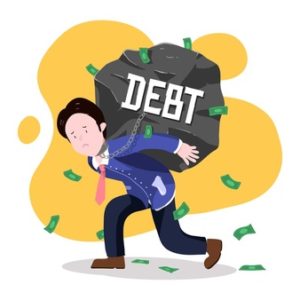Bankruptcy is a legal proceeding that gives debtors relief from overwhelming debt, both temporarily through the automatic stay, and permanently through the bankruptcy discharge. However, some debts are not discharged in bankruptcy. The outcome depends on which type of bankruptcy you filed and what type of debt you have. Read on below to learn about which debts are dischargeable and nondischargeable, and how creditors can use dischargeability action to prevent a debt from being wiped out through the bankruptcy process.
Most unsecured debts that you have before filing can be discharged in consumer bankruptcy. The discharge eliminates your liabilities so you don’t have to repay lenders for discharge debt unless they have a lien on a property you want to keep. Here are some of the categories of dischargeable debt listed in the bankruptcy code.

There are, however, some debts that either of the two types of bankruptcy can’t wipe out. Here is a list of nondischargeable debt that cannot be eliminated by filing for bankruptcy.
Note that only those debts which were incurred before filing have dischargeability. If you incur a loan or debt after filing your bankruptcy petition, you still have to pay off those debts even after declaring bankruptcy since these cannot be discharged in a bankruptcy filing.
Your creditors can file an adversary proceeding for certain debts that they don’t want to discharge in bankruptcy. This lawsuit filed in the bankruptcy court is known as a dischargeability action, and the case begins after your creditor files and serves a complaint. After you respond, the case goes through the discovery phase first, before reaching a final dischargeability determination in court or through a settlement.
A debtor can also file a dischargeability action to determine whether certain debts are going to be discharged after their bankruptcy case is completed.
If you’re considering filing bankruptcy, it’s important to know which of your debts can be eliminated through a declaration of bankruptcy. Bankruptcy filings can be daunting especially when there are numerous bankruptcy forms to accomplish. Failure to accomplish these forms properly can lead to a dismissal rather than a discharge. It’s best to seek legal assistance from an experienced bankruptcy attorney who’s knowledgeable about bankruptcy laws and can provide you with bankruptcy information to help you make the right decisions. Get in touch with our EZ Legal Fees by EZ Legal Fees by WantAFreshStart Bankruptcy Attorneys to get started on your fresh start today!